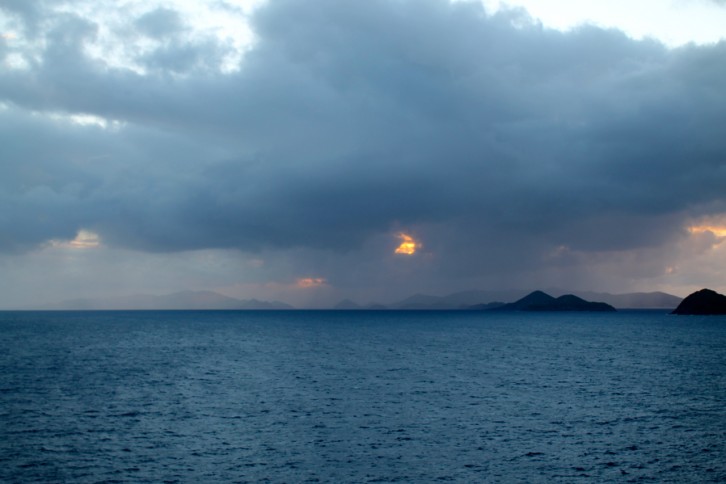“So many fail because they don’t get started – they don’t go. They don’t overcome inertia. They don’t begin.”
~ Ben Stein
It’s funny …. I drafted this morning’s post yesterday. But drafts can never take into account the thoughts that arise in the present moment while I watch the sunrise. As I stared out at the grey wall of clouds, with the wind still fiercely whipping about, I kept looking at the tiny hole of light in the sky. In finding our focus and our creative path, it is sometimes really hard to escape inertia …. to see the light through the darkness …. to see the forest through the trees ….
Max McKeown says that “Change is not overcoming inertia as much as it is redirecting, guiding, tweaking what already is and what has already happened. We must believe that we can make choices and that those choices can alter the future.” “To make great ideas, we must act, experiment, fail, adapt and learn on a daily basis.”
And in doing so, it’s imperative that we stop what we are doing, and that we take stock of our daily routine. “If you keep playing without any time-outs, your game starts to slip.” And in today’s creative, digital landscape, you might not even be aware that your game is slipping. You work hard, but at the end of the day, you have nothing tangible to show for it. “Today’s demons are the everyday annoyances, the little things that suck away our potential to do big things.” This to me is being stuck in inertia …
Each of us has our own demons and excuses for why the “big things” we wish to accomplish just don’t happen.
To quote Ryan Holmes: “The longer you’re stuck in a position that doesn’t truly challenge you, the less likely you’ll be able to leave it. Inertia, in fact, is one of my worst fears.”
I spent last week noting on a piece of paper how I actually spend my day, versus how my ideal creative day should unfold.
What I found is that once I began answering email, my “creative” energies were done. I’m up at sunrise, I write and create for an hour or two, I eat breakfast, and then I can’t help but check my email. Once I’ve done this, it’s like a light is switched off, and there is no energy left come lunch time to pick up on “the big creative project” in the afternoon. I’m more apt to move to menial administrative tasks or physical activity surround my short term rentals, the work which “brings home the bacon”. Or I become distracted by other’s projects. After dinner, I’ve yet to find a way to regain creative time: As much as I’d rather keep the TV off, on it goes. Or I’ll get caught up with Facebook.
Another problem I’m having is that I simply have too many “big project” ideas. Outside of the villas, I struggle allocating time between my own personal web development, aiding clients with their websites, recipe writing for a myriad of cookbooks, or pulling together my thoughts on this blog to form a collective work. I keep searching for the right technology to help me implement my ideas. I have set in my mind that until I learn Adobe InDesign, a book just isn’t going to materialize. I’d like a personal office space with a closed door to find focus. It also doesn’t help that my boyfriend has a less than routine schedule.
I realize that these are in many ways excuses and hurdles that I will have to be overcome. “It’s time to take responsibility, and stop blaming our surroundings. While no workplace is perfect, it turns out our gravest challenges are a lot more primal and personal. It’s our routine (or lack thereof), our capacity to work pro-actively rather than re-actively, and our ability to systematically optimize our work habits over time that determines our ability to make ideas happen.”
We’re too busy doing stuff to change how we go about it ….
“In this world of “reactionary workflow”, we live a life pecking away at the many inboxes around us, trying to stay afloat by responding and reacting to the latest thing: email, text messages, tweets, and so on.”
I urge you to take stock: Spend some time today becoming aware of just how re-actionary you may have become. At what time of the day are you most creative and why? What pulls you out of your creative focus? Why do you allow it? And how long does it take you to re-gain your focus, once you’ve allowed yourself to be pulled out of it. Can it be regained at all?
“Only by taking charge of your day-to-day can you truly make an impact in what matters most to you.”


